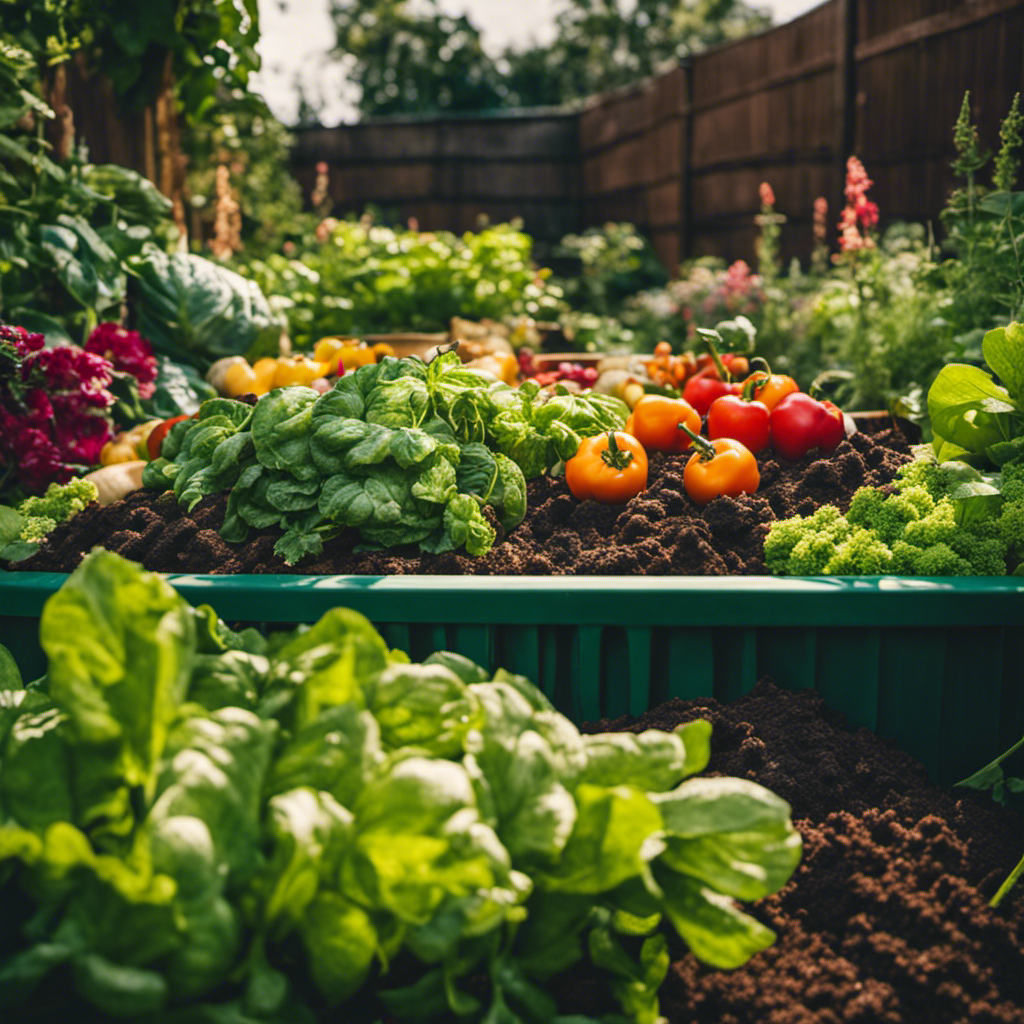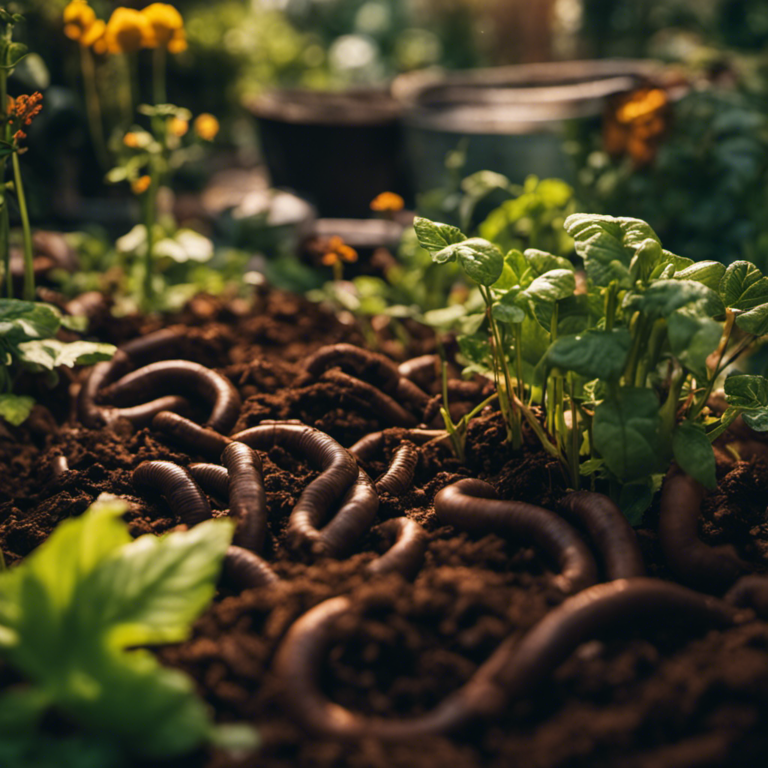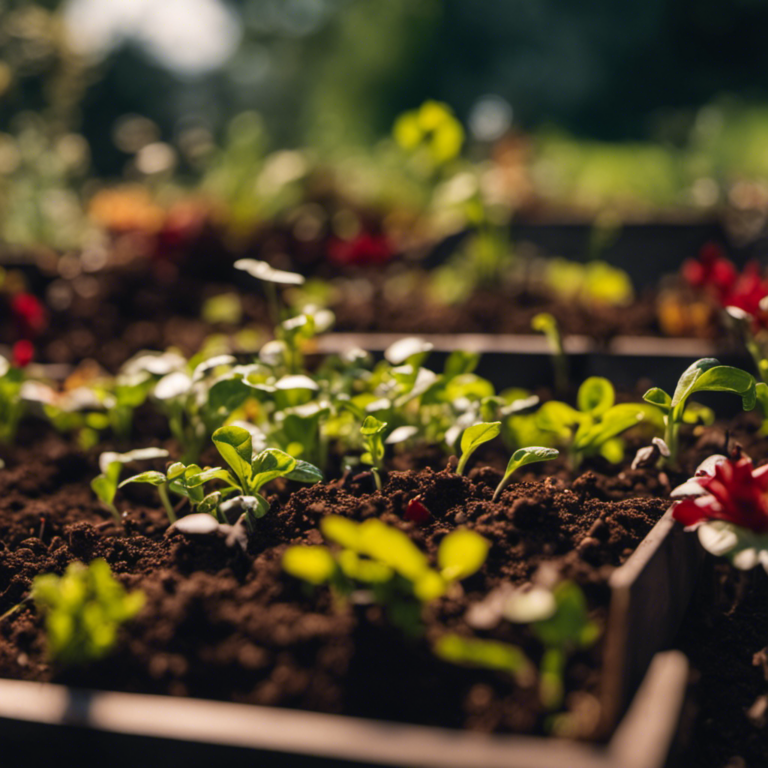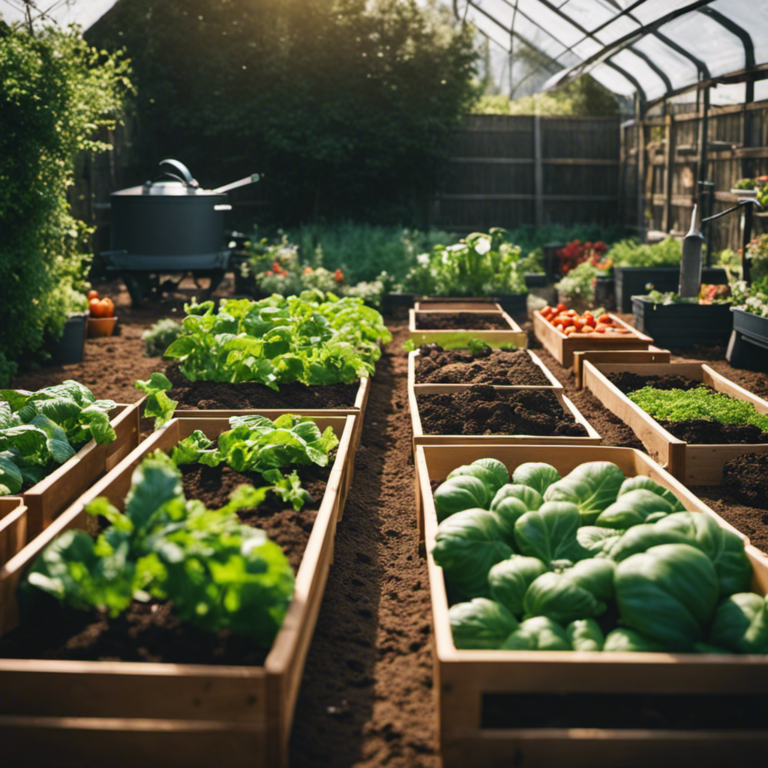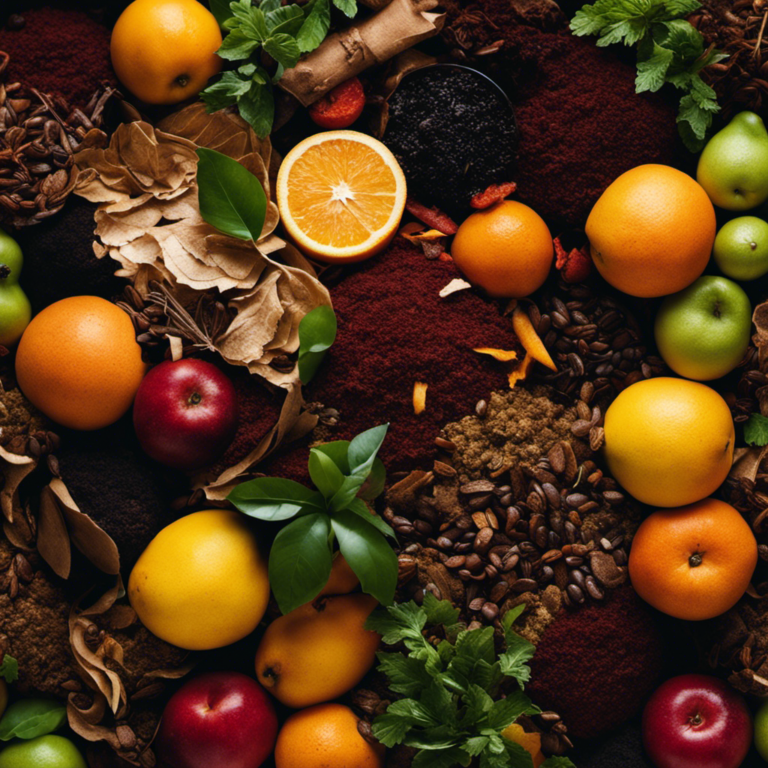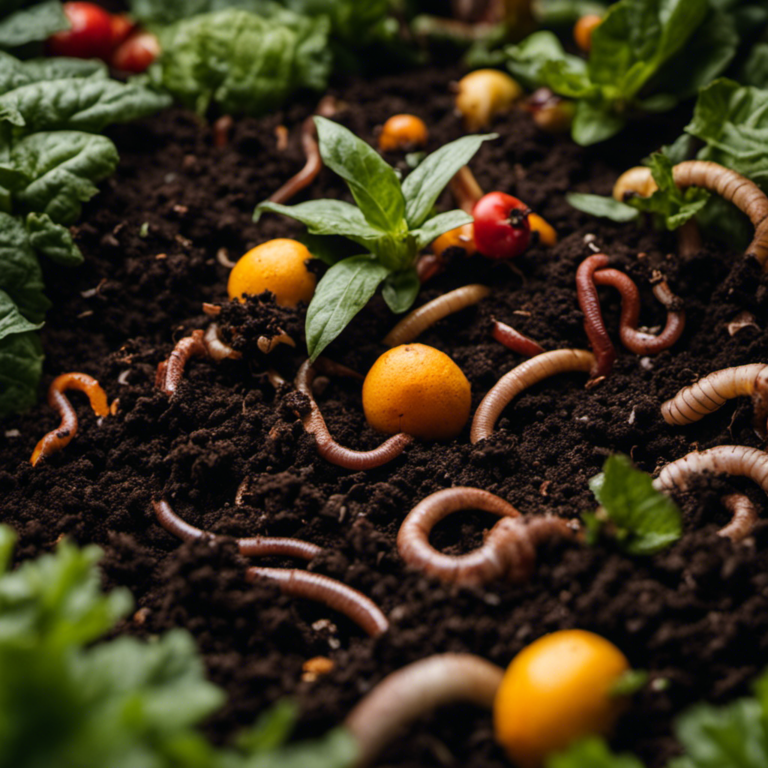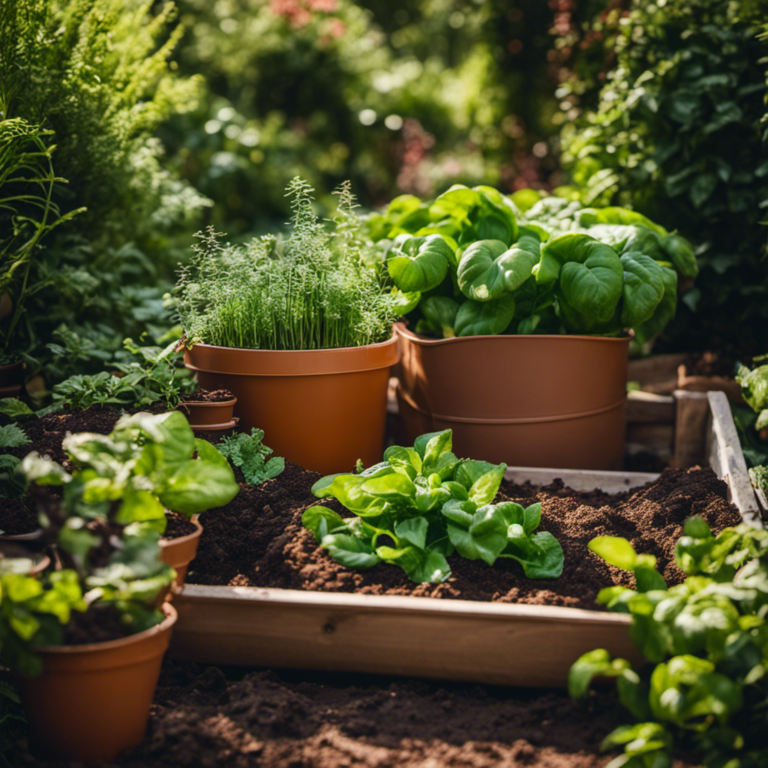As an enthusiastic gardener, I am always looking for ways to improve my organic harvests. That’s why I am excited to share some rapid composting techniques that have truly transformed my garden.
In this article, I will guide you through several effective composting methods, including:
- Hot composting
- Vermiculture with worms
- The bokashi composting system
- Compost tea brewing techniques
- Using microbial inoculants for faster decomposition
By implementing these sustainable gardening practices, you can unlock the secrets to achieving bountiful organic harvests and contribute to your family and community’s well-being.
Key Takeaways
Implementing rapid composting techniques, such as hot composting, vermicomposting, bokashi composting, compost tea brewing, and microbial inoculants, can help you achieve bountiful organic harvests. While some may argue that these methods require extra effort, the benefits of nutrient-rich soil and reduced waste make them well worth it. By embracing these sustainable practices, you can create a flourishing garden while minimizing your environmental impact. So why not give them a try and enjoy the rewards of a thriving organic garden?
Hot Composting Method
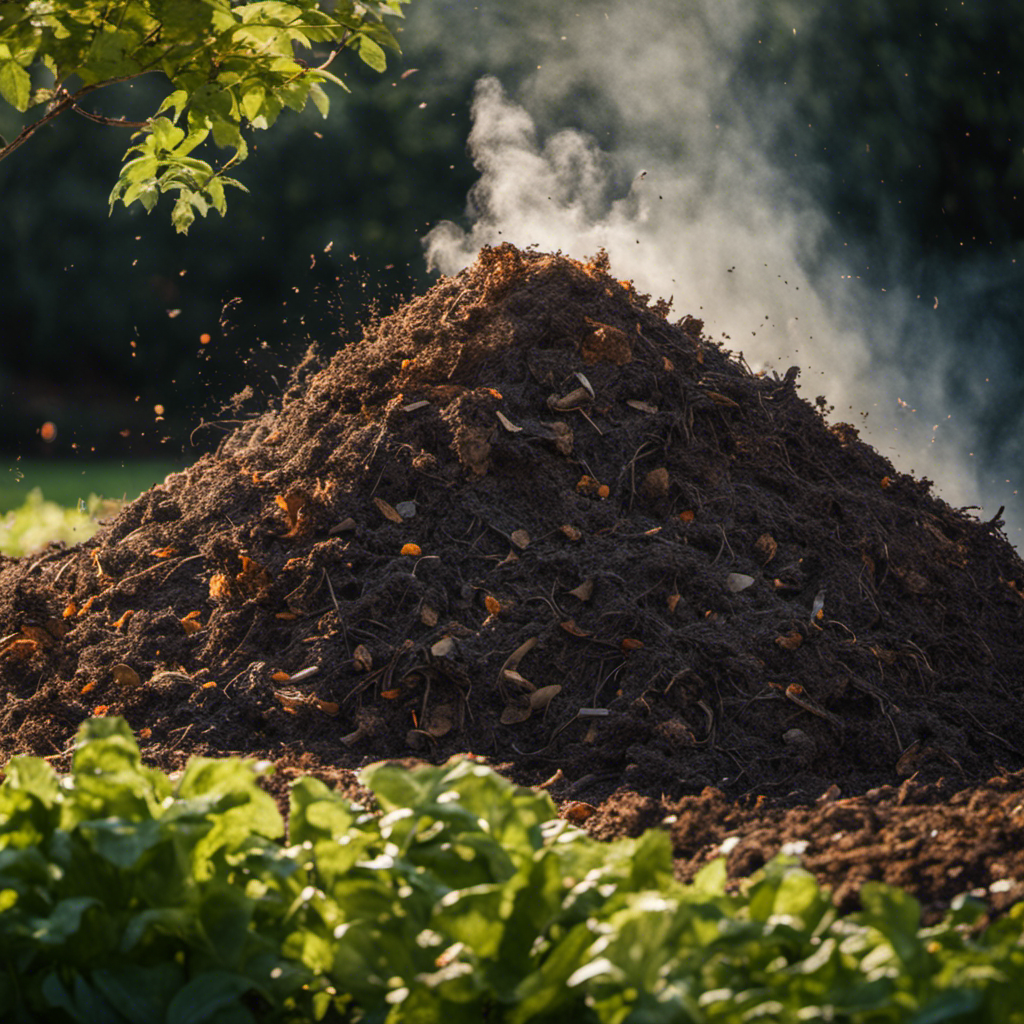
I prefer using the hot composting method because it effectively breaks down organic matter quickly and efficiently. Hot composting is a process that relies on temperature control to accelerate the breakdown of organic materials. To do this, you create a compost pile that reaches high temperatures, usually between 130 to 160 degrees Fahrenheit, which promotes the growth of beneficial microorganisms.
Maintaining the right balance of materials and providing adequate aeration are key to successful hot composting. It’s important to have a good mix of green (nitrogen-rich) and brown (carbon-rich) materials. Green materials include kitchen scraps, fresh grass clippings, and coffee grounds, while brown materials include dried leaves, straw, and wood chips. By combining these materials in the right proportions, you create an ideal environment for microbial activity and decomposition.
Temperature control is critical in hot composting. As the pile heats up, it kills off weed seeds and harmful pathogens, making the resulting compost safe for use in your garden. Regularly turning or aerating the pile helps distribute heat evenly and ensures that all materials are exposed to the high temperatures necessary for rapid decomposition.
Vermicomposting With Worms
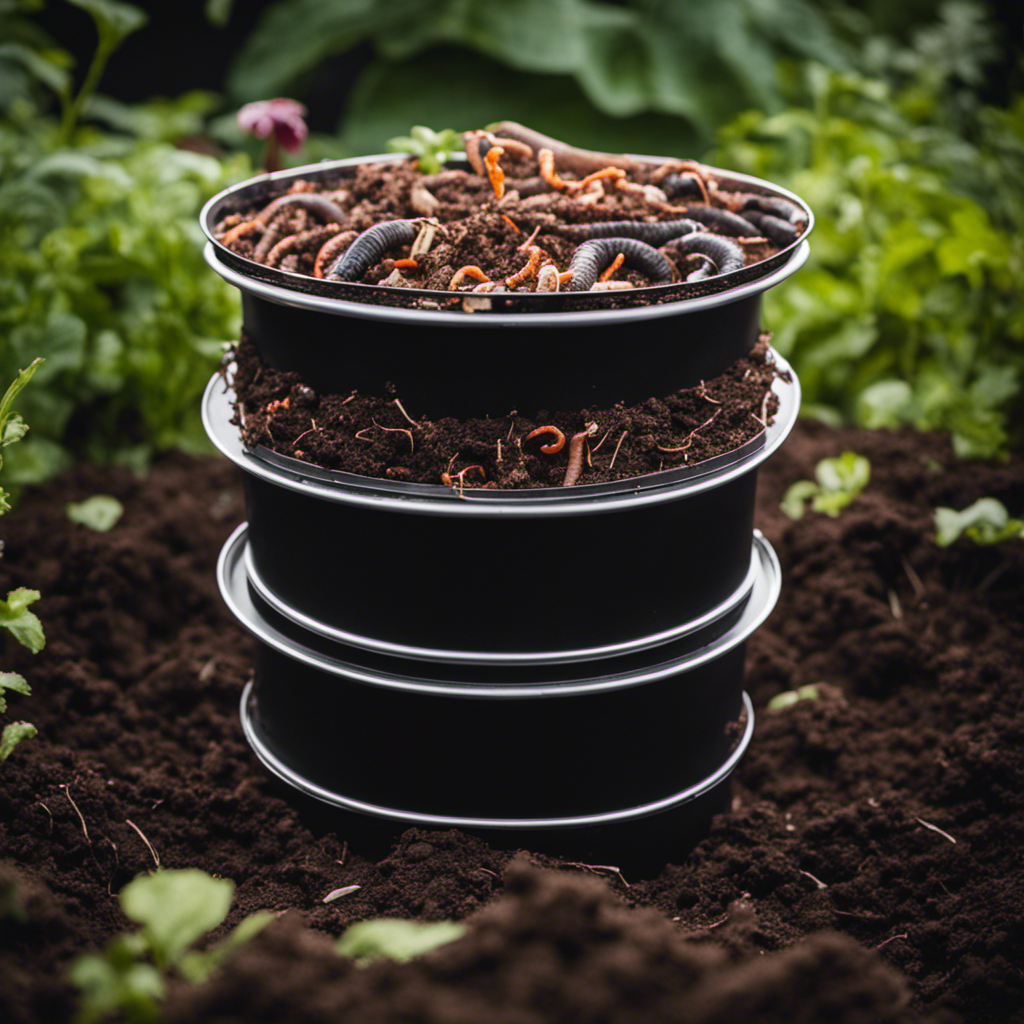
How can using worms in vermicomposting speed up the composting process? Vermicomposting is a technique that utilizes worms to break down organic waste and create nutrient-rich compost. By harnessing the power of these small creatures, we can expedite the decomposition process and produce high-quality soil amendments for our gardens.
Here are some important considerations for successful vermicomposting:
-
Constructing a worm bin: It’s crucial to create an optimal environment for the worms. You can either build or purchase a worm bin that provides enough space, ventilation, and drainage. Make sure the bin is made of non-toxic materials like plastic or wood, which are safe for the worms.
-
Choosing the right worm species: Not all worms are suitable for vermicomposting. Red worms (Eisenia fetida) and red wigglers (Lumbricus rubellus) are commonly recommended due to their ability to consume large amounts of organic waste and reproduce rapidly. These species thrive in the conditions provided by a worm bin.
-
Feeding the worms: To maintain a healthy vermicomposting system, it’s important to feed the worms a balanced diet consisting of kitchen scraps, yard waste, and shredded paper or cardboard. However, it’s crucial to avoid feeding them meat, dairy, oily foods, or citrus, as these can attract pests or create an imbalanced environment.
By incorporating vermicomposting into your composting routine, you can significantly accelerate the process and produce nutrient-rich compost for your garden. Following proper techniques for constructing a worm bin and selecting the right worm species will help you create a sustainable and efficient vermicomposting system.
Happy composting!
Bokashi Composting System
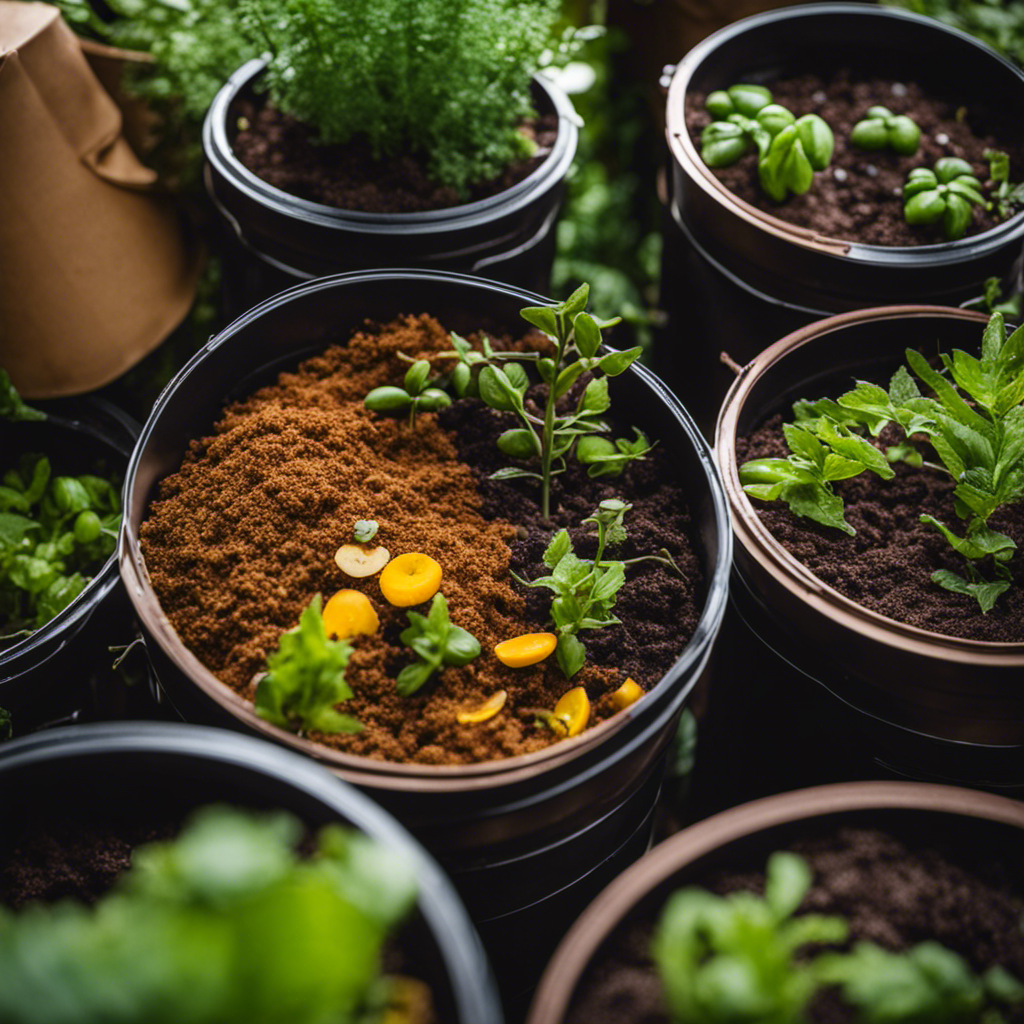
The Bokashi composting system uses a fermentation process to quickly break down organic waste into nutrient-rich compost. This method offers numerous benefits for individuals seeking to reduce their environmental impact and improve soil health for gardening.
To start a Bokashi composting system, you’ll need a Bokashi bucket or bin, Bokashi bran, and organic waste such as fruit and vegetable scraps, coffee grounds, and eggshells. Begin by placing a layer of Bokashi bran at the bottom of the bucket. Then, add a layer of organic waste and sprinkle more Bokashi bran on top. Repeat this layering process until the bucket is full, ensuring to press down the waste to eliminate air pockets.
Once the bucket is full, seal it tightly and store it in a cool, dark place for two weeks. During this time, the organic waste will undergo fermentation, breaking down into nutrient-rich compost. After two weeks, you can use the compost in your garden or add it to potted plants.
The benefits of Bokashi composting are plentiful. It helps reduce food waste, eliminates odors, and creates compost enriched with beneficial microorganisms that enhance soil health. Moreover, Bokashi composting can be done indoors, making it a convenient option for those with limited outdoor space.
Start your own Bokashi composting system today and enjoy the rewards of sustainable waste management and healthy, nutrient-rich soil.
Compost Tea Brewing Techniques
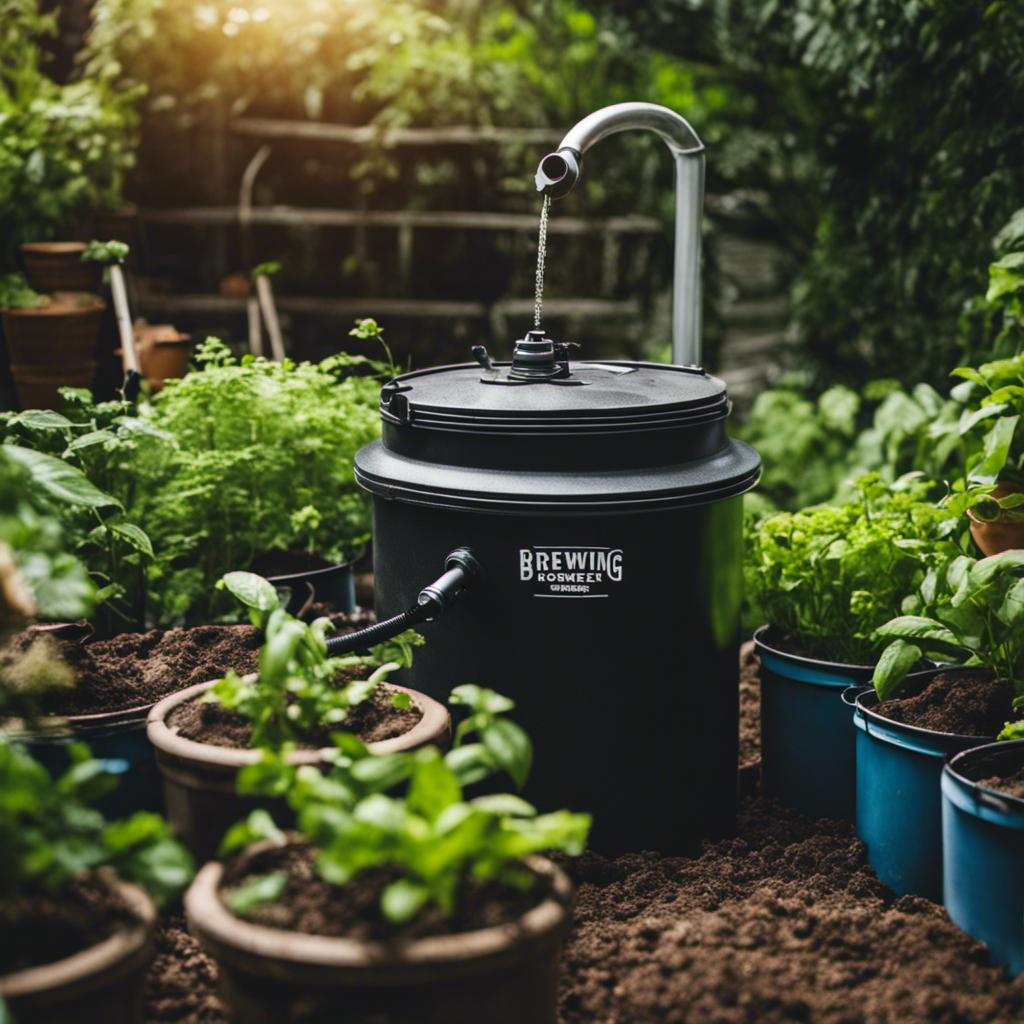
Composting Tea Brewing Techniques
Composting tea is a valuable liquid fertilizer that can greatly improve the health and productivity of your plants. Let’s now explore the techniques for brewing compost tea:
-
Select the right container: Use a food-grade container with a tight-fitting lid to brew your compost tea. This will ensure that no unwanted contaminants enter the brew.
-
Aerate the tea: Oxygenated compost tea is the most beneficial for your plants. Use an aquarium pump and an air stone to infuse the tea with oxygen during the brewing process. This will encourage the growth of beneficial microorganisms that enrich the tea with nutrients.
-
Brew for the appropriate duration: The brewing time for compost tea varies depending on the desired strength. Generally, brewing for 24 to 48 hours is enough to extract the beneficial microbes and nutrients from the compost.
Compost tea offers numerous benefits for your garden. It improves soil structure, enhances nutrient availability, and promotes plant growth and disease resistance. By incorporating aerated compost tea into your gardening routine, you can enjoy abundant organic harvests while supporting sustainable practices.
Microbial Inoculants for Accelerated Decomposition
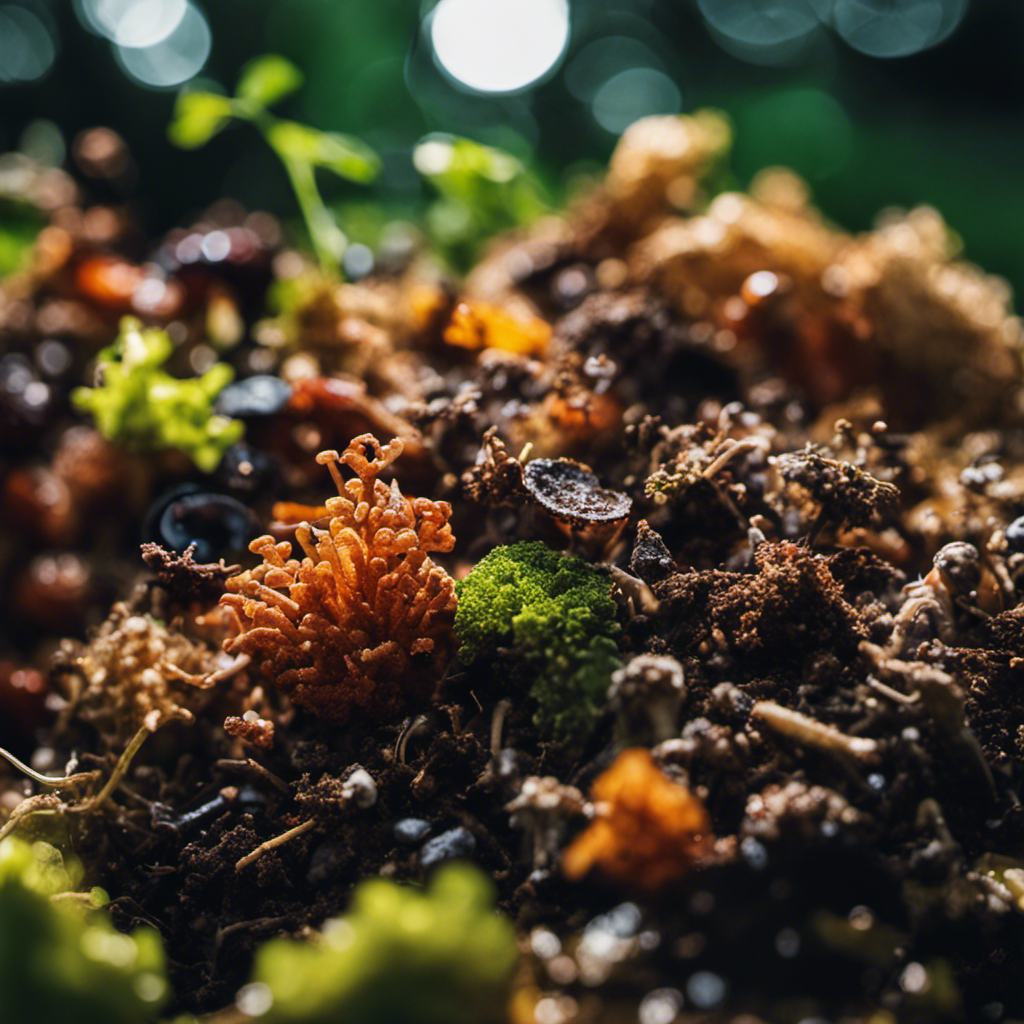
To speed up the process of decomposition in composting, you can add specific types of microbial inoculants. These inoculants are made up of beneficial microorganisms that enhance the diversity of microbes in the compost and promote the cycling of nutrients. They consist of various bacteria, fungi, and other microorganisms that play a vital role in breaking down organic matter and releasing essential nutrients.
By incorporating microbial inoculants into your compost pile, you can accelerate the decomposition process and produce high-quality compost in less time. These microorganisms work by breaking down complex organic compounds into simpler forms that plants can easily absorb. They also help to suppress the growth of harmful pathogens and improve the overall health of the compost.
Here is a table showcasing three common types of microbial inoculants and how they benefit the decomposition process:
- Bacteria: Breaks down organic matter, fixes nitrogen, and enhances nutrient availability.
- Fungi: Decomposes tough plant materials, improves soil structure, and increases water retention.
- Actinomycetes: Breaks down cellulose, produces enzymes, and suppresses harmful pathogens.
Incorporating these microbial inoculants into your composting process creates an environment that supports the growth of beneficial microorganisms and accelerates decomposition. As a result, you’ll obtain nutrient-rich compost that nourishes your plants and promotes a fruitful organic harvest.
Remember to follow sustainable practices and use organic materials to maintain a healthy and environmentally-friendly composting system.
Conclusion
By implementing rapid composting techniques such as hot composting, vermicomposting, bokashi composting, compost tea brewing, and microbial inoculants, you can achieve bountiful organic harvests.
While some may argue that these methods require extra effort, the benefits of nutrient-rich soil and reduced waste make them well worth it.
Embracing these sustainable practices can lead to a flourishing garden while minimizing your environmental impact.
So why not give them a try and reap the rewards of a thriving organic garden?
